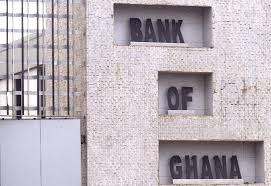Investment consultant – Mr. David Ganesha Tetteh has revealed that, the suspension of dividend payment by financial institutions in 2020 may play a minute role in the strength of the Cedi.
Mr. David Tetteh made this revelation during an interview with the Vaultz News where he intimated that the strength of the Cedi last year was mainly as a result of lesser imports which was induced by the COVID-19 pandemic, and the exportation of gold and cocoa which has increased the demand for the Cedi. Nevertheless, the suspension of dividend payment by financial institutions, as instructed by the Bank of Ghana, may play a minor role in the strength of the Cedi, he posited.
“Overall, the Cedi depreciated by the end of 2020 but the Cedi performed far better as compared to the previous year- 2019. This was basically caused by the COVID-19 pandemic which has marginally reduced the level of import in the country. However, when you take a look at the balance of payment data, you can see that export earnings from gold and cocoa have surged, and as a result, we experienced trade surplus in 2020 which has boosted the strength of the Cedi. Suspension of dividend payment only impacted minimally on the strength of the Cedi“
The response from Mr. David Tetteh came as a result of an enquiry into whether or not the decision taken by the Bank of Ghana did influence the performance of the Cedi in 2020. On the 18th of March 2020, the Bank of Ghana instructed banks not to pay dividends to shareholders for the 2019 and 2020 financial years because of the Coronavirus (COVID-19) pandemic and its effects.

Apart from COVID-19 which has caused a decline in imports, Mr. David Tetteh who is also a council member of the Ghana Stock Exchange posited that, policies from the government and the Bank of Ghana also played salient roles in the strength of the Cedi.
“Aside COVID-19 impact on trade, prudent policies from the Bank of Ghana and the government have also helped strengthen the Cedi. Government’s fiscal stimulus programme, and the monetization of government bonds are key initiatives that played a major role in the strength of the Cedi. The suspension of dividend payment by the Bank of Ghana probably may have curbed capital flight which often occurs after dividend payment when most investors, some of which are foreigners, may decide to move funds to foreign accounts or portfolios depending on the prevailing condition in the country. Basically, I think the decision of BoG was probably to safeguard and cushion banks in case of bank-run which was anticipated as a result of the pandemic. Above all, COVID-19 and policies played a major role in the strength of the Cedi, the role played by the suspension of dividend payment may not be very significant.”
The strength of the Cedi in this scenario is not necessarily talking about the appreciation of the Cedi against the Dollar but rather a decline in the level of depreciation. The Cedi depreciated against the dollar by 12.1% in 2019. However, 2020 saw only a 3.9% depreciation of the Cedi. Traditionally, the strength of the Cedi is determined by the level of import and export of goods and services in the economy. Nonetheless, present determination of the performance of any currency transcends the traditional concept as capital flight can significantly impact on domestic currency; hence, the need to take a critical look at what happens in the financial sector when discussing issues pertaining to the exchange rate.
Read also: Stock Markets’ Advances Showing Signs of Growing Economy





















